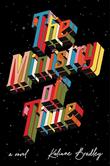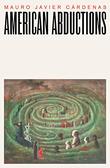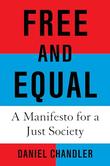
by Norman H. Finkelstein ‧ RELEASE DATE: today
A brief, even-toned overview of American antisemitism, suitable for all readers.
A survey of the origins and history of antisemitism and how only a vigorous response from the community can stop it.
Finkelstein (1941-2024), a two-time winner of the National Jewish Book Awards, begins with the New Testament: “Embedded in its messages of love and compassion is a clear contempt for Jews and Judaism.” The author then concentrates on Jewish settlement in early America and resistance to it, e.g., by New Amsterdam governor Peter Stuyvesant, who called Jews a “deceitful race.” Nevertheless, the Jewish community grew, and many prominent Jews supported the American Revolution, including Haym Solomon, who helped finance it. In response to Jewish nervousness about equal treatment in the new republic, George Washington assured them in a 1790 letter that “all possess alike liberty of conscience and immunities of citizenship.” Finkelstein shows how Jews fervently believed in America’s promise of equality and opportunity, despite efforts to restrict them. In 1862, Abraham Lincoln swiftly countermanded Gen. Ulysses S. Grant’s outrageous Order No. 11 expelling all Jews from his military district, which covered parts of three states. In the decades to come, the swelling of Jewish immigration would create a powerful new voting bloc. The 1915 lynching of Leo Frank and the fomenting of anti-Jewish feelings by Henry Ford were counterbalanced by the creation of the Anti-Defamation League and the appointment of Louis Brandeis to the Supreme Court. The author also examines the important relationship between Jews and African Americans during the civil rights struggle. The rise of Israel has been both a boon in public perception of Jews and, in recent years, a negative, as Zionism has been equated with racism. After the 2018 Tree of Life shooting in Pittsburgh and other antisemitic violence, Finkelstein emphasizes the importance of education.
A brief, even-toned overview of American antisemitism, suitable for all readers.Pub Date: today
ISBN: 9780827615236
Page Count: 302
Publisher: Jewish Publication Society
Review Posted Online: Feb. 10, 2024
Kirkus Reviews Issue: March 15, 2024
Share your opinion of this book
More by Norman H. Finkelstein
BOOK REVIEW
by Norman H. Finkelstein ; illustrated by Vesper Stamper
BOOK REVIEW
BOOK REVIEW

by Matthew Desmond ‧ RELEASE DATE: March 21, 2023
A clearly delineated guide to finally eradicate poverty in America.
Awards & Accolades
Likes

12
Our Verdict

GET IT
New York Times Bestseller
A thoughtful program for eradicating poverty from the Pulitzer Prize–winning author of Evicted.
“America’s poverty is not for lack of resources,” writes Desmond. “We lack something else.” That something else is compassion, in part, but it’s also the lack of a social system that insists that everyone pull their weight—and that includes the corporations and wealthy individuals who, the IRS estimates, get away without paying upward of $1 trillion per year. Desmond, who grew up in modest circumstances and suffered poverty in young adulthood, points to the deleterious effects of being poor—among countless others, the precarity of health care and housing (with no meaningful controls on rent), lack of transportation, the constant threat of losing one’s job due to illness, and the need to care for dependent children. It does not help, Desmond adds, that so few working people are represented by unions or that Black Americans, even those who have followed the “three rules” (graduate from high school, get a full-time job, wait until marriage to have children), are far likelier to be poor than their White compatriots. Furthermore, so many full-time jobs are being recast as contracted, fire-at-will gigs, “not a break from the norm as much as an extension of it, a continuation of corporations finding new ways to limit their obligations to workers.” By Desmond’s reckoning, besides amending these conditions, it would not take a miracle to eliminate poverty: about $177 billion, which would help end hunger and homelessness and “make immense headway in driving down the many agonizing correlates of poverty, like violence, sickness, and despair.” These are matters requiring systemic reform, which will in turn require Americans to elect officials who will enact that reform. And all of us, the author urges, must become “poverty abolitionists…refusing to live as unwitting enemies of the poor.” Fortune 500 CEOs won’t like Desmond’s message for rewriting the social contract—which is precisely the point.
A clearly delineated guide to finally eradicate poverty in America.Pub Date: March 21, 2023
ISBN: 9780593239919
Page Count: 288
Publisher: Crown
Review Posted Online: Nov. 30, 2022
Kirkus Reviews Issue: Jan. 1, 2023
Share your opinion of this book
More by Matthew Desmond
BOOK REVIEW
More About This Book
PERSPECTIVES
PERSPECTIVES
SEEN & HEARD

by Alok Vaid-Menon ‧ RELEASE DATE: June 2, 2020
A fierce, penetrating, and empowering call for change.
Artist and activist Vaid-Menon demonstrates how the normativity of the gender binary represses creativity and inflicts physical and emotional violence.
The author, whose parents emigrated from India, writes about how enforcement of the gender binary begins before birth and affects people in all stages of life, with people of color being especially vulnerable due to Western conceptions of gender as binary. Gender assignments create a narrative for how a person should behave, what they are allowed to like or wear, and how they express themself. Punishment of nonconformity leads to an inseparable link between gender and shame. Vaid-Menon challenges familiar arguments against gender nonconformity, breaking them down into four categories—dismissal, inconvenience, biology, and the slippery slope (fear of the consequences of acceptance). Headers in bold font create an accessible navigation experience from one analysis to the next. The prose maintains a conversational tone that feels as intimate and vulnerable as talking with a best friend. At the same time, the author's turns of phrase in moments of deep insight ring with precision and poetry. In one reflection, they write, “the most lethal part of the human body is not the fist; it is the eye. What people see and how people see it has everything to do with power.” While this short essay speaks honestly of pain and injustice, it concludes with encouragement and an invitation into a future that celebrates transformation.
A fierce, penetrating, and empowering call for change. (writing prompt) (Nonfiction. 14-adult)Pub Date: June 2, 2020
ISBN: 978-0-593-09465-5
Page Count: 64
Publisher: Penguin Workshop
Review Posted Online: March 14, 2020
Kirkus Reviews Issue: April 1, 2020
Share your opinion of this book
More In The Series
by Shavone Charles ; illustrated by Ashley Lukashevsky
by Leo Baker ; illustrated by Ashley Lukashevsky
© Copyright 2024 Kirkus Media LLC. All Rights Reserved.
Hey there, book lover.
We’re glad you found a book that interests you!
We can’t wait for you to join Kirkus!
It’s free and takes less than 10 seconds!
Already have an account? Log in.
OR
Trouble signing in? Retrieve credentials.
Welcome Back!
OR
Trouble signing in? Retrieve credentials.
Don’t fret. We’ll find you.





